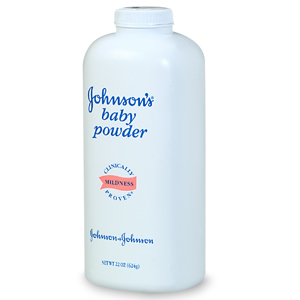 Top Class Action Lawsuits
Top Class Action Lawsuits
Is it Facebook’s Time to Face the Ringtone? Maybe…the social media giant is facing a proposed Telephone Consumer protection Act (TCPA) class action lawsuit alleging it sends unwanted text messages to peoples’ cellphones notifying them that their accounts have been logged into. The $5 million complaint alleges that Facebook knowingly violated the TCPA by sending these unwanted text messages. According to the Facebook lawsuit, Facebook provides an “extra security feature” in which it sends log-in notifications to alert users when their account is accessed from a new device. However, these text messages are allegedly sent, in some cases several times a day, to people who haven’t given Facebook authorization to do so, who have asked Facebook to stop this practice, and who allegedly do not even have Facebook accounts. Question—how does FB acquire emails of people who don’t have FB accounts?
Servicing over a billion Facebook accounts worldwide, Facebook’s automated systems are powerful and, when used improperly, capable of extreme invasions into the privacy of American consumers,” the complaint states. “Facebook operates a sloppy system and in doing so shows complete disregard for the privacy of consumers.”
According to lead plaintiff Noah Duguid, Facebook began sending text messages to his cellphone in January 2014, without his having given his cell phone number to FB, or his having had any business dealings with the social media company. Oh, you just gotta love that.
After Duguid allegedly sent the defendant a detailed email in April 2014 complaining about the messages and asking that they stop, Facebook replied with an automatic email telling him to log on to its website to report the problematic content. This continued until the following October when Duguid allegedly responded to an Facebook text using the word “off”. After this, the company replied “Facebook texts are now off. Reply on to turn them back on.” Regardless, the company continued to text Duguid, according to the complaint.
The proposed TCPA class action lawsuit seeks to represent a class of individuals in the U.S. who didn’t give Facebook their cell number and received one or more of the accused texts within the four years before the filing of the complaint, and a class of individuals who received texts in the same time frame despite telling Facebook they didn’t want them. Plaintiff seeks at least $500 in damages for each violation of the TCPA. Go baby go!
FYI—the case is Noah Duguid et al. v. Facebook Inc., case number 3:15-cv-00985, in the U.S. District Court for the Northern District of California.
How Much is the Medicine Worth? There’s the $65 million dollar question facing Celgene Corp. They were hit with an antitrust class action lawsuit filed by The City of Providence in New Jersey, alleging the pharmaceutical company monopolized the market for two of its blockbuster cancer drugs by blocking its competitors’ access to samples necessary to bring generic versions to market.
According to the potential class action, Celgene is using risk evaluation and mitigation strategies, a federal drug safety measure, to prevent competitors such as Mylan Pharmaceuticals Inc. from gaining access to samples for Thalomid and Revlimid. Those samples are necessary for the Food and Drug Administration test for generic equivalency.
According to the lawsuit, “Due to Celgene’s monopolistic and anticompetitive conduct, plaintiff, and all other consumers and third-party payors, paid higher prices to treat leprosy and multiple myeloma than they otherwise would have absent Celgene’s conduct.” Specifically, the plaintiff alleges those prices have risen upwards of 3,400 percent since the initial approval of the treatments by the FDA in 1998. The lawsuit contends that one Revlimid pill sells for approximately $500.
The suit is City of Providence v. Celgene Corporation, case number 2:15-cv-01605, in the U.S. District Court for the District of New Jersey.
Top Settlements
I’m betting there’s a lot of happy tech engineers in Silicon Valley this week. A $415 million settlement has received preliminary approval ending a closely watched antitrust class action lawsuit filed by tech workers in Silicon valley. The lawsuit alleged that Apple Inc., Google Inc., Intel Corp., and Adobe Systems Inc., conspired to refrain from poaching each other’s employees thereby limiting job mobility and, consequently, keeping salaries at a standstill. Nice.
The antitrust class action lawsuit was filed in 2011, and was based largely on emails in which Apple co-founder Steve Jobs, former GoogleChief Executive Officer Eric Schmidt and some of their rivals detailed plans to avoid poaching each other’s prized engineers.
Nearly 64,000 workers are affected by the case. They accused the companies of a corporate conspiracy to make it difficult for tech workers to negotiate better jobs at rival companies.
Judge Lucy Koh said she was satisfied this week after the companies increased their earlier offer of $324.5 million. Let’s hope this deal get’s final approval.
Hokee Dokee- That’s a wrap folks…Time to adjourn for the week. See you at the bar!

